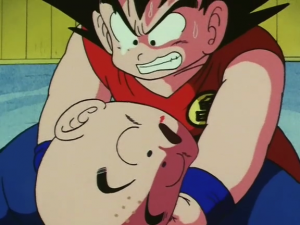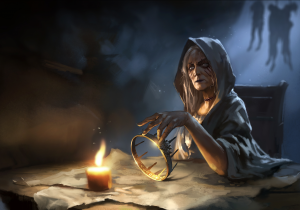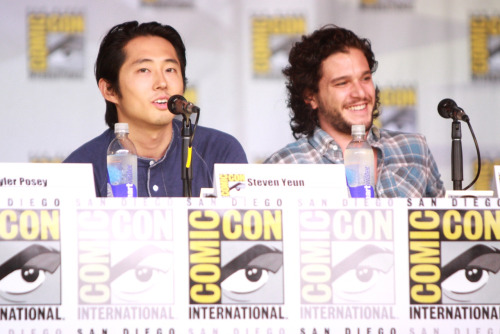Warning: This article contains spoilers for Game of Thrones and The Walking Dead.
I love a good cliffhanger. I was one of those fans who obsessively theorized about how the Harry Potter books would end (Is Harry a horcrux? Does one of the Weasley twins die? Does Neville Longbottom become a badass?). I looked for secret messages in A Series of Unfortunate Events and wrote fanfiction to pass the time in between books. I literally couldn’t sleep at night pondering the origins of the shadow monster and hatch in Lost. A series is successful, in my opinion, when it can grasp the audience’s interest so strongly that even during long hiatuses, there is still buzz.

Don’t worry, by death #4, it will get easier
But there gets to be a certain point when you have to draw the line between a genuinely good cliffhanger and a marketing ploy, and I’m afraid with the rise of social media, a lot of current TV series have been jumping on the “hype” train in all the worst ways. Take the recent resurrection of Jon Snow in Game of Thrones, or Glenn somehow miraculously surviving a walker horde attack from under a dumpster in The Walking Dead. Now, just to be clear, my issue is not that these “dead” characters survived impossible situations. This is a trope that is as old as time, and I’ve watched enough Dragonball to know that what is dead will never actually die. My issue is that the showrunners deliberately toyed with audiences on social media for months, which cheapened the emotional impact of these cliffhangers. The showrunners of The Walking Dead cryptically told audiences on the aftershow, Talking Dead, that “parts” of Glenn were alive. GOT went so far as to force Kit Harington (Jon Snow) to say he was done with the show so vehemently and actively in the media, all while the character was being featured in promotional materials for season six, to the point that it was suspicious.

STILL SALTY, YA’LL, STILL SALTY
If you have to constantly remind audiences that a character is (only mostly) dead, it significantly lowers the stakes. Why hype something if a character is actually dead? As book readers of A Song and Ice and Fire know, Catelyn Stark is revived (somewhat) to become Lady Stoneheart. Fans were excited to see this translate to screen, but the showrunners remained mum about it, and it can now safely be assumed she won’t be part of the show. Because Jon Snow received special treatment in the media compared to the numerous other GOT victims, his resurrection came as a surprise to basically no one. On the other hand, if a presumably dead character such as Sandor Clegane aka The Hound returns, I will be genuinely excited because the showrunners have been pretty quiet about his fate and left it to the fans to hype Cleganebowl (the final showdown between The Hound and The Mountain, which was talked about even before the show aired).
And don’t get me started on the most recent season finale of The Walking Dead. While the anxiety-inducing game of “Eeny Meeny Miny Moe” was some of the most suspenseful television I’ve ever seen, it was woefully cheapened by ending the episode showing Negan beating the life out of an anonymous victim. Now the audience will have to wait months to find out who it was, and the impact of seeing a character we’ve grown to love die in such a horrific way will just not be as powerful because we’ve had time to detach and look at the scene analytically rather than emotionally. By not showing us a visceral scene in its entirety, we are removed from the story itself, which is exactly the opposite of what a cliffhanger should accomplish. A good cliffhanger introduces an intriguing challenge and sets a new installment of a series in motion. A good cliffhanger does not end in media res, wearing a bright neon jumpsuit screaming, “IS THE THING GOING TO HAPPEN?!” and more importantly, does not advertise itself every day on Facebook and Twitter.
Gimmicky cliffhangers may be OK for telenovelas, but they feel stale in serious dramatic television. More importantly, showrunners don’t need to stir shit on social media for shows as popular as Game of Thrones and The Walking Dead. Very few people are going to stop watching if “X character” dies because these are shows that have very high stakes; you go in knowing your fave might get it this week. If you truly have an exciting story with intriguing mysteries, hype will create itself among the fan community. If you have to resort to gimmicks to hold the audience’s interest, it means you’re losing steam, and that is what causes viewers to stop watching. While there are certainly plenty of people that eat teasing up, you’re doing a great disservice to your loyal fans by boiling down the rawest moments in your show to clickbait.
Header image via tumblr. Dragonball image via Dragonball wiki. Calendar art of Lady Stoneheart via Fanpop.


